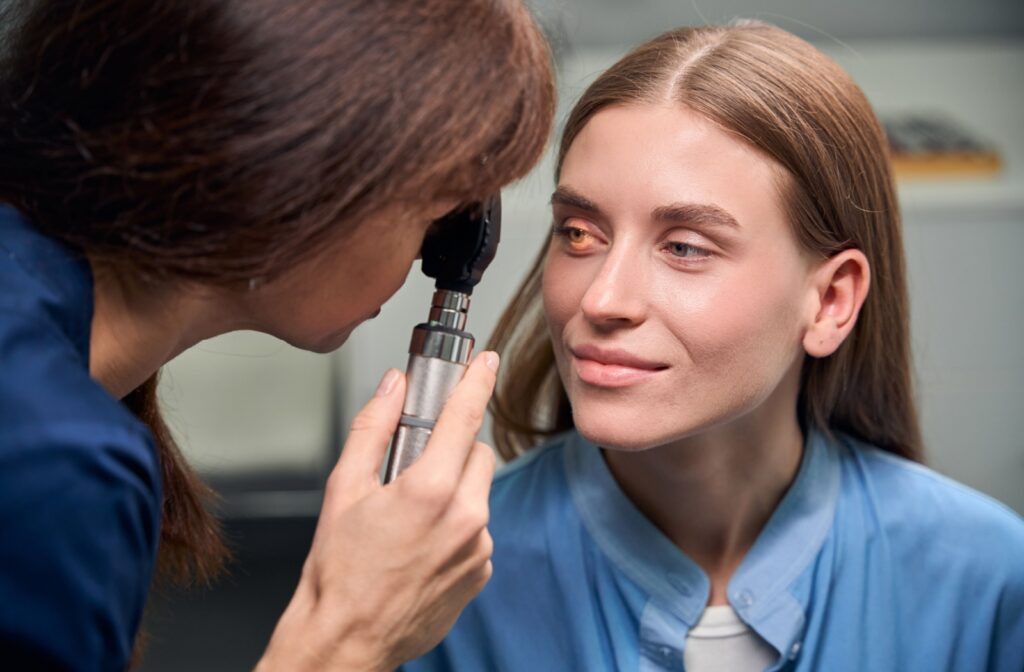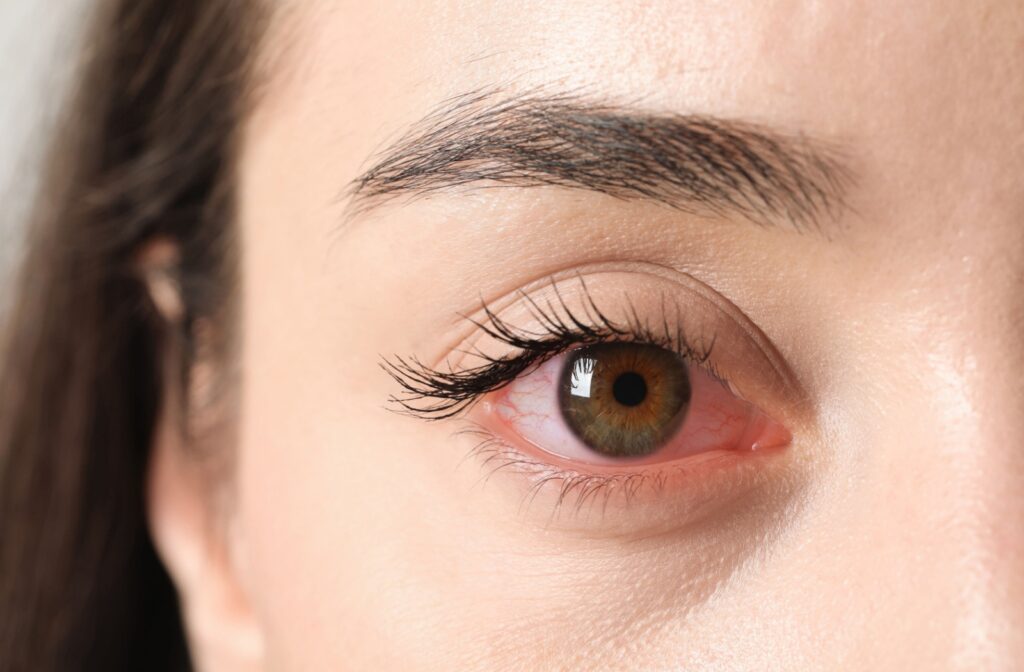Eye emergencies can be alarming, and knowing where to go for care can make all the difference. Whether you’re dealing with sudden vision loss, an eye injury, or unexplained pain, it’s important to act quickly.
So, where should you go for an eye emergency? In most cases, your optometrist should be your first point of contact. Optometrists are trained to handle a wide range of urgent eye issues and can provide fast, effective care or refer you if your condition requires more specialized treatment.
What Counts as an Eye Emergency?
Not all eye issues require emergency care, but there are symptoms that definitely shouldn’t wait. If you’re experiencing any of the following, you should seek help as soon as possible:
- Sudden vision changes, like complete or partial vision loss, can signal serious problems such as retinal detachment, optic nerve issues, or even stroke-related complications.
- Eye trauma, whether from a fall, impact, or chemical exposure, needs prompt attention. Trauma can lead to internal bleeding, corneal damage, or increased eye pressure.
- Severe eye pain, especially when accompanied by redness or light sensitivity, could be a sign of conditions like acute glaucoma, corneal abrasions, or serious infections.
- Flashes of light or a sudden shower of floaters in your vision may indicate a retinal tear or detachment, which requires immediate treatment to prevent permanent vision loss.
- Foreign objects stuck in the eye, especially anything embedded, should be addressed by a professional, not removed at home.
Even if a symptom seems minor, it’s always safer to err on the side of caution. Many eye emergencies are time-sensitive, and the sooner they’re addressed, the better the outcome.
When to Call Your Optometrist
Your optometrist is your go-to provider for most eye emergencies. Optometrists specialize in the eye, and they have the tools and knowledge to diagnose and treat many urgent problems. Most optometry clinics have protocols in place for emergency visits and may even offer same-day appointments when needed.
Eye doctors can treat infections, minor injuries, painful inflammation, and sudden visual disturbances. In some cases, they’ll dilate your pupils to get a better view of your retina or use imaging tools to diagnose issues that can’t be seen from the surface.
If we determine that your condition is more serious—such as requiring surgery or hospital-based care—they can quickly refer you to an ophthalmologist or direct you to the emergency room.
When the ER is the Better Choice
There are situations where the emergency room is more appropriate, especially if your symptoms come on after hours or are part of a broader medical issue. For example:
- If you’ve sustained serious trauma from a car accident or fall and are bleeding, dizzy, or confused, go to the ER immediately.
- If your eye emergency happens at night or on a weekend, and your optometrist’s office does not provide after hours services, the ER can provide care and stabilize your condition.
- If you’re experiencing total, painless vision loss, it could be a sign of a vascular or neurological emergency that requires immediate hospital care.
Why Not Just Go to Urgent Care?
Urgent care clinics can be helpful for minor illnesses and injuries, but they’re not always equipped for eye emergencies. Staff may not have the tools or training to evaluate deeper eye structures or accurately diagnose certain eye conditions. As a result, you may still need to see your optometrist afterward.
Going to your eye doctor first—when possible—often means faster answers and better results. Plus, it may save you the added cost and wait times associated with urgent care or emergency room visits.

The Importance of Routine Eye Exams
One of the best ways to reduce your risk of an eye emergency is to stay on top of regular eye exams. Many serious eye conditions, like glaucoma or retinal disease, can develop without obvious symptoms. Routine check-ups can help catch problems early, before they become emergencies.
You should also see your optometrist if you notice:
- Gradual changes in your vision quality
- Frequent headaches after screen use
- Trouble seeing clearly at night
- Unusual sensitivity to light
If you have a personal or family history of eye disease, diabetes, or high blood pressure, it’s especially important to maintain a consistent schedule of eye exams.
What to Do in an Eye Emergency
If you think you’re experiencing an eye emergency:
- Don’t panic—but act quickly. Delaying care can lead to permanent damage.
- Call your optometrist. Explain your symptoms and ask if they can see you right away.
- Avoid self-treatment. Don’t rub your eye, try to remove embedded objects, or apply medication unless directed by a professional.
- After regular office hours, your optometrist may have a number to call to provide guidance for emergencies. Otherwise, go to your nearest emergency room, especially if symptoms are severe or worsening.
Remember: You know your body best. If something feels wrong with your vision, trust your instincts and reach out for help.
Protect Your Vision with Prompt, Expert Care
When your eyes need urgent attention, knowing where to turn can save your sight. For most eye emergencies, like infections, foreign bodies, or sudden visual changes, your optometrist is the best first call. We can treat the issue directly or get you the care that you need quickly. For severe injuries or if symptoms occur outside of office hours, head to the emergency room for immediate help. At Vision One Boise, we’re here to support your eye health, whether it’s a routine exam or an emergency situation. If you’re experiencing a sudden eye problem or have concerns about your vision, don’t wait. Contact our team today and let us help you protect your sight.



